Pennington, NJ – The Electrochemical Society (ECS) has named 15 new members to the 2022 Class of ECS Fellows. The designation “Fellow of The Electrochemical Society” was established in 1989 for advanced individual technological contributions to the fields of electrochemistry and solid state science and technology, and for service to the Society. Fellows are recognized for scientific achievements, leadership, and active participation in the affairs of ECS. Each year, their peers choose up to 15 renowned scientists and engineers for this honor.
The 2022 ECS Fellows are (listed alphabetically): Michel Armand, Centre national de la recherche Scientifique (CNRS); Perla Balbuena, Texas A&M University; Gerbrand Ceder, University of California, Berkeley; Wilson K. S. Chiu, University of Connecticut; Andrew Hoff, University of South Florida (USF); Gao Liu, Lawrence Berkeley National Laboratory (LBNL); Brett Lucht, University of Rhode Island; Janine Mauzeroll, McGill University; Nguyen Minh, University of California, San Diego (UCSD); Deborah J. Myers, Argonne National Laboratory’s Chemical Sciences and Engineering Division; James (Jamie) Noël, Western University; Elizabeth (Lisa) J. Podlaha-Murphy, Clarkson University; Vijay Ramani, Washington University in St. Louis (WUSTL); Yasuhiro Shimizu, Nagasaki University; and Shunpei Yamazaki, Semiconductor Energy Laboratory Co..
2022 Fellows of The Electrochemical Society
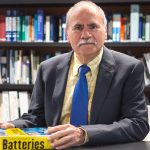 Michel Armand is Emeritus Researcher at the Centre national de la recherche Scientifique (CNRS), and works at CIC-Energigune in Spain. Armand, after introducing the intercalation concept, led the community with outstanding contributions to the field of battery electrochemistry with major industrial applications. Dr. Armand’s most important findings are solid state polymer electrolytes for Li Metal Polymer batteries which are now commercialized; new highly conductive salt families like LiTFSI (commercialized) and LiFSI for advanced electrolytes; and carbon-nanopainting of LiFePO4 leading to wide-scale commercialization of this olivine in electric vehicles and grid storage batteries.
Michel Armand is Emeritus Researcher at the Centre national de la recherche Scientifique (CNRS), and works at CIC-Energigune in Spain. Armand, after introducing the intercalation concept, led the community with outstanding contributions to the field of battery electrochemistry with major industrial applications. Dr. Armand’s most important findings are solid state polymer electrolytes for Li Metal Polymer batteries which are now commercialized; new highly conductive salt families like LiTFSI (commercialized) and LiFSI for advanced electrolytes; and carbon-nanopainting of LiFePO4 leading to wide-scale commercialization of this olivine in electric vehicles and grid storage batteries.
Dr. Armand received his PhD in Physics from Université Joseph Fourier in 1978. He was a Senior Scientist at Lawrence Berkeley National Laboratory (1982-1983); Director of Research at CNRS starting in 1989; Professor at the Université de Montréal (1995-2004); and Director of the Joint CNRS-UdM International Laboratory on Electroactive Materials (2000-2004). Dr. Armand joined CIC-EnergiGUNE in 2011 as part of the Scientific Committee of the Electrochemical Storage, Batteries, and Supercaps area, while leading the creation of the Polymer Electrolyte Research Group, currently a leader in European research on solid state batteries.
Dr. Armand is the author or co-author of over 500 publications (h-factor 95) with over 69,500 citations, as well as contributing to 16 book chapters. Among the many honors he received are the 2010 Galileo Award; 2000 ECS Europe Section Volta Award; 1995 International Society for Electrochemistry Pergamon Medal; 1988 ECS Battery Division Award; 1985 Royal Society Faraday Division Award; and CNRS 1978 Bronze and 1989 Silver Medals. Stanford University included him on their 2019 List of 100,000 Top Scientists. The Clarivate Highly Cited Researchers List included him for multiple years. In 2020, the Society published the JES Focus Issue on Challenges in Novel Electrolytes, Organic Materials, and Innovative Chemistries for Batteries in Honor of Michel Armand.
 Perla Balbuena is Professor of Chemical Engineering and holds the Mike O’Connor Chair I at Texas A&M University, where she also has joint appointments in Chemistry, and Materials Science and Engineering. Her expertise is on first principles analysis of materials and interfacial reactions, for catalysis, electrocatalysis, and battery materials. Her work has contributed to elucidating crucial interfacial reaction mechanisms such as the formation and growth of solid-electrolyte interphases in advanced battery technologies.
Perla Balbuena is Professor of Chemical Engineering and holds the Mike O’Connor Chair I at Texas A&M University, where she also has joint appointments in Chemistry, and Materials Science and Engineering. Her expertise is on first principles analysis of materials and interfacial reactions, for catalysis, electrocatalysis, and battery materials. Her work has contributed to elucidating crucial interfacial reaction mechanisms such as the formation and growth of solid-electrolyte interphases in advanced battery technologies.
Prof. Balbuena completed a PhD in Chemical Engineering at the University of Texas at Austin in 1996 after finishing a BS in 1973 at Universidad Tecnológica Nacional and MSE in 1983 at the University of Pennsylvania. Included in the numerous awards she received throughout her career are the 2020 Texas A&M Engineering Experiment Station (TEES) Research Impact Award; 2017 Engineering Genesis Award; 2002 University of South Carolina Young Investigator Award; NSF CAREER awards (1997-1999); and fellowships from TEES, American Association for the Advancement of Science, and American Institute of Chemical Engineers. She serves as an Associate Editor for the Journal of The Electrochemical Society and ECS Advances.
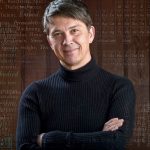 Gerbrand Ceder holds the Samsung Distinguished Chair in Nanoscience and Nanotechnology at the University of California, Berkeley, with a joint appointment as Senior Faculty Scientist at Lawrence Berkeley National Laboratory. There he combines theory, computation, and experiments to develop novel materials for energy storage. For over 25 years, Ceder has worked in Li-ion technology, and more recently also on alternative energy storage approaches such as solid state batteries, Na-ion, and Mg-ion devices. He is a co-inventor of the disordered rocksalt cathode materials (DRX) for Li-ion technology and was active in formulating the US Materials Genome Initiative.
Gerbrand Ceder holds the Samsung Distinguished Chair in Nanoscience and Nanotechnology at the University of California, Berkeley, with a joint appointment as Senior Faculty Scientist at Lawrence Berkeley National Laboratory. There he combines theory, computation, and experiments to develop novel materials for energy storage. For over 25 years, Ceder has worked in Li-ion technology, and more recently also on alternative energy storage approaches such as solid state batteries, Na-ion, and Mg-ion devices. He is a co-inventor of the disordered rocksalt cathode materials (DRX) for Li-ion technology and was active in formulating the US Materials Genome Initiative.
Prof. Ceder began his academic career studying at the Katholieke Universiteit Leuven, and then received his PhD in Materials Science from UC Berkeley. After 24 years as Professor at the Massachusetts Institute of Technology (MIT), he returned to UC Berkeley. The author of over 500 papers (h-index 154), Prof. Ceder holds more than 50 U.S. and foreign patents. He is a member of the U.S. National Academy of Engineering, Royal Flemish Academy of Belgium for Science and the Arts, and American Academy for the Arts and Sciences; Fellow of the Materials Research Society (MRS); Metals, Minerals, and Materials Society; and American Physical Society. Prof. Ceder received the 2017 National Academy of Engineering Award; 2016 International Battery Research Award; 2016 MRS Materials Theory Award; 2009 MRS Gold Medal; 2007 MIT School of Engineering Graduate Teaching Award; and 2004 ECS Battery Research Award.
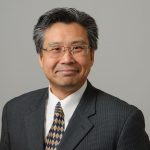 Wilson K. S. Chiu is Professor of Mechanical Engineering at the University of Connecticut. In collaboration with an international team of scientists and engineers, he pioneered new synchrotron-based x-ray imaging and spectroscopy methods to elucidate complex 3-D electrochemical and transport processes in energy materials. Applications include solid oxide and polymer electrolyte membrane fuel cells and electrolyzers, mixed ionic-electronic conducting separation membranes, battery and solar materials, ceramic waste forms, and molten salts.
Wilson K. S. Chiu is Professor of Mechanical Engineering at the University of Connecticut. In collaboration with an international team of scientists and engineers, he pioneered new synchrotron-based x-ray imaging and spectroscopy methods to elucidate complex 3-D electrochemical and transport processes in energy materials. Applications include solid oxide and polymer electrolyte membrane fuel cells and electrolyzers, mixed ionic-electronic conducting separation membranes, battery and solar materials, ceramic waste forms, and molten salts.
Prof. Chiu earned his PhD in Mechanical Engineering from Rutgers University. He held visiting appointments at Columbia University and the Università degli Studi di Napoli Federico II. He published seven book chapters/special volumes, 126 journal articles, and 203 conference articles/abstracts. He served on beam line advisory, science review, and proposal review committees for synchrotron light sources. Among his honors, Prof. Chiu is an elected Fellow of the American Society of Mechanical Engineers (ASME) and American Society of Thermal and Fluids Engineers. He was awarded an Otto Mønsted Guest Professorship; United Technologies Corporation Professorship in Engineering Innovation; and elected into the Connecticut Academy of Science and Engineering. He received the Office of Naval Research Young Investigator Award, Army Research Office Young Investigator Award, and the NSF CAREER Award. Prof. Chiu is the Editor-in-Chief of the ASME Journal of Electrochemical Energy Conversion and Storage, guest editor for the Journal of The Electrochemical Society, and served as an associate editor and on the editorial board of several other journals. He is the lead organizer of the triannual ECS Symposium on Heterogeneous Functional Materials (HeteroFoaMs) for Energy Conversion and Storage.
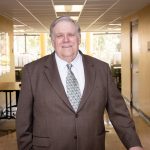 Andrew Hoff is Professor and Graduate Director of the Electrical Engineering Program at the University of South Florida (USF). His research focuses on diverse applications of plasma processing in material and biomedical realms. These include afterglow chemical processes, Corona-Kelvin Metrology, and drug and DNA molecular delivery for cancer treatment.
Andrew Hoff is Professor and Graduate Director of the Electrical Engineering Program at the University of South Florida (USF). His research focuses on diverse applications of plasma processing in material and biomedical realms. These include afterglow chemical processes, Corona-Kelvin Metrology, and drug and DNA molecular delivery for cancer treatment.
Prof. Hoff received his PhD in Electrical Engineering from Pennsylvania State University in 1988 and joined the faculty at USF that year as a founding member of the Center for Microelectronics Research. He is Past Director of the CMR Metrology Laboratory and Co-Director of the state workforce training Agile Initiative (1998-2004). From 2002-2018, Prof. Hoff directed or collaborated on NSF-ATE workforce development programs in Florida . He received a 2013 Outstanding Engineering Educator award from Florida West Coast IEEE and 2000 Pioneering Award for Non-Contact Metrology.
Dr. Hoff joined ECS as a student member in the late 1970s and began attending conferences in the late 1980s. He became a member of the Electronics and Photonics division (EPD) in 2003 and has served on their Executive Committee in various positions, including division chair, since 2004. He also served the Society as symposium organizer; ECS Publication Committee division representative (2005-2009); Interface Advisory Board member (2005-2011); and is currently serving as a member of the Honors & Awards Committee.
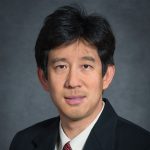 Gao Liu is Senior Scientist and Group Leader of the Applied Energy Materials Group at Lawrence Berkeley National Laboratory (LBNL), where he specializes in energy storage R&D. With over 20 years of experience in developing materials and system engineering for electrical energy storage, Liu has led research projects for industry and the U.S. Department of Energy (DOE). His research combines synthetic chemistry, composite engineering, and electrochemistry to solve interdisciplinary problems in energy generation, storage, and usage. Liu’s lab uses advanced diagnostics to understand fundamental and critical issues in energy systems, and synthetic techniques to develop new materials that improve overall system performance. His ongoing research in battery and energy storage covers electrode binder, silicon, sulfur and lithium metal materials, electrode engineering, electrolytes and additives, and solid state conductors. Besides energy storage research, Liu also performs materials and engineering research in building resiliency, circular economy, and advanced manufacturing.
Gao Liu is Senior Scientist and Group Leader of the Applied Energy Materials Group at Lawrence Berkeley National Laboratory (LBNL), where he specializes in energy storage R&D. With over 20 years of experience in developing materials and system engineering for electrical energy storage, Liu has led research projects for industry and the U.S. Department of Energy (DOE). His research combines synthetic chemistry, composite engineering, and electrochemistry to solve interdisciplinary problems in energy generation, storage, and usage. Liu’s lab uses advanced diagnostics to understand fundamental and critical issues in energy systems, and synthetic techniques to develop new materials that improve overall system performance. His ongoing research in battery and energy storage covers electrode binder, silicon, sulfur and lithium metal materials, electrode engineering, electrolytes and additives, and solid state conductors. Besides energy storage research, Liu also performs materials and engineering research in building resiliency, circular economy, and advanced manufacturing.
Liu received a BS from Beijing University in 1993, and a PhD in Chemistry from Michigan State University in 2001. He has over 180 peer-reviewed publications and more than 20 granted patents. His work has garnered numerous awards including the 2013 and 2015 R&D 100 Award; 2014 FMC Corporation Scientific Achievement Award; and University of California 2011 Discovery Grant. Liu currently serves as Chair of the ECS San Francisco Section.
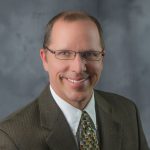 Brett Lucht is a Professor at the University of Rhode Island. His research focuses on novel electrolytes and electrolyte electrode interfaces for lithium ion battery applications which include extending the calendar life, improving low temperature properties, improving the performance of novel high capacity anodes such as lithium metal or silicon, and improving the performance of high voltage cathode materials. He conducts basic science and applied research regularly, and collaborates extensively with industrial partners.
Brett Lucht is a Professor at the University of Rhode Island. His research focuses on novel electrolytes and electrolyte electrode interfaces for lithium ion battery applications which include extending the calendar life, improving low temperature properties, improving the performance of novel high capacity anodes such as lithium metal or silicon, and improving the performance of high voltage cathode materials. He conducts basic science and applied research regularly, and collaborates extensively with industrial partners.
Prof. Lucht received a BS in Chemistry from the University of Puget Sound in 1991 and PhD in Chemistry in 1996 from Cornell University. He completed postdoctoral research at the University of California, Berkeley before beginning work at the University of Rhode Island in 1998. Prof. Lucht was promoted to Associate Professor with tenure in 2002 and Professor in 2006. He is Associate Editor for the Journal of The Electrochemical Society and ECS Advances as well as Vice Chair of the ECS Battery Division. He published over 170 manuscripts (h-index 64) and two book chapters, and holds nine patents. An invited or keynote speaker at over 100 companies, universities, national laboratories, and international conferences, Prof. Lucht has mentored more than 100 students including over 40 graduate students, 30 undergraduate students, 20 postdoctoral fellows, along with several visiting students.
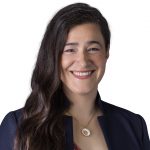 Janine Mauzeroll is Professor of Chemistry at McGill University. There she heads a research group of 20 graduate students, undergraduates, postdoctoral fellows, and research associates focused on topics ranging from electrochemistry in organic and biological media to electronically conducting polymers. Her group systematically combines experimental and numerical simulation approaches to study electrochemical systems in the field of biology, corrosion, batteries, electrolysis, electrocatalysts, and electrosynthesis.
Janine Mauzeroll is Professor of Chemistry at McGill University. There she heads a research group of 20 graduate students, undergraduates, postdoctoral fellows, and research associates focused on topics ranging from electrochemistry in organic and biological media to electronically conducting polymers. Her group systematically combines experimental and numerical simulation approaches to study electrochemical systems in the field of biology, corrosion, batteries, electrolysis, electrocatalysts, and electrosynthesis.
Prof. Mauzeroll completed her BS at McGill in 1999, followed by a PhD in 2004 from the University of Texas at Austin (2004) with Allen J. Bard. She completed a postdoctoral fellowship in 2005 in Jean-Michel Savéant’s laboratory. After serving as Assistant and then Associate Professor at the Université du Québec à Montréal from 2005-2011, Prof. Mauzeroll returned to her alma mater, McGill, as Associate Professor in 2012. She received the 2015 Chemical Society of Canada Fred Beamish Award and 2003 ECS Summer Fellowship. Technical Editor for the Journal of The Electrochemical Society Organic and Bioelectrochemistry topical interest area since 2016, Prof. Mauzeroll was recently appointed Technical Editor for the Organic and Bioelectrochemistry topical interest area of ECS Advances. She also served on the editorial boards of Analytical Chemistry and ChemElectroChem and chaired the 2020 Gordon Conference on Electrochemistry. Prof. Mauzeroll delivered 100 presentations with 60 invitations to give talks at major universities, plenary lectures, and numerous invited lectures. She is active in her scientific community with 13 conferences (organized or chaired), and 26 scientific committees (including the Chair of the NSERC Chemistry Liaison Committee and a Member of NSERC-Discovery Grant Committee on Chemistry).
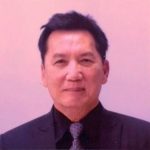 Nguyen Minh is presently with the Center for Energy Research at the University of California, San Diego (UCSD). An internationally known expert on solid oxide fuel cells (SOFCs), solid oxide electrolysis cells (SOECs), and related technologies, his current SOFC research at UCSD focuses on basic and applied science and engineering studies on properties, phenomena, and designs key to SOFC/SOEC stack technology and development of advanced concepts. Over the last 30 years, he has dedicated his research to the development of SOFCs/SOECs and new energy systems. His experience covers a full spectrum of industrial/product R&D areas, ranging from technology assessment, strategy and roadmap formulation, fundamental and engineering study to materials, processes and manufacturing development, system design and operation, prototype demonstration, and cost/market analysis.
Nguyen Minh is presently with the Center for Energy Research at the University of California, San Diego (UCSD). An internationally known expert on solid oxide fuel cells (SOFCs), solid oxide electrolysis cells (SOECs), and related technologies, his current SOFC research at UCSD focuses on basic and applied science and engineering studies on properties, phenomena, and designs key to SOFC/SOEC stack technology and development of advanced concepts. Over the last 30 years, he has dedicated his research to the development of SOFCs/SOECs and new energy systems. His experience covers a full spectrum of industrial/product R&D areas, ranging from technology assessment, strategy and roadmap formulation, fundamental and engineering study to materials, processes and manufacturing development, system design and operation, prototype demonstration, and cost/market analysis.
Before UCSD, Minh was Chief Scientist/Manager, Fuel Cells at General Electric and Honeywell/AlliedSignal, and a Group Leader/Staff in Electrochemical Technology at Argonne National Laboratory. He is the author/co-author of the book, Science and Technology of Ceramic Fuel Cells, and nine book chapters, some 150 published technical articles on SOFCs and related technologies, and holds 21 patents. His review paper, “Ceramic Fuel Cells,” published in the Journal of the American Ceramic Society in 1993, is a classic widely cited in the literature and translated into several languages. Minh received awards including the 2007 American Society of Mechanical Engineers Francis T. Bacon Medal; 2017 Fuel Cell Seminar & Energy Exposition Award; and 2021 ECS H-Temp Division Subhash Singhal Award.
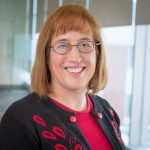 Deborah J. Myers is Senior Chemist and Leader of the Hydrogen and Fuel Cell Materials Group in Argonne National Laboratory’s Chemical Sciences and Engineering Division. She is Co-lead of the U.S. Department of Energy (DOE) Hydrogen and Fuel Cell Technologies’ Electrocatalysis Consortium; Deputy Director for DOE’s “Hydrogen from the Next Generation of Electrolyzers of Water” Consortium; and Deputy Director for DOE’s “Million Mile Fuel Cell Truck” consortium. Myers’ expertise is in the development, characterization, and understanding of fuel cell and electrolyzer electrocatalysts and electrodes. Her present research areas include: in situ and operando x-ray scattering, spectroscopy, and ex situ x-ray tomography techniques to understand the active sites, degradation mechanisms, and factors controlling the performance and durability of fuel cell and electrolyzer catalysts and electrodes; and high-throughput approaches to develop and implement platinum group metal-free oxygen reduction and oxygen evolution electrocatalysts for fuel cells and electrolyzers.
Deborah J. Myers is Senior Chemist and Leader of the Hydrogen and Fuel Cell Materials Group in Argonne National Laboratory’s Chemical Sciences and Engineering Division. She is Co-lead of the U.S. Department of Energy (DOE) Hydrogen and Fuel Cell Technologies’ Electrocatalysis Consortium; Deputy Director for DOE’s “Hydrogen from the Next Generation of Electrolyzers of Water” Consortium; and Deputy Director for DOE’s “Million Mile Fuel Cell Truck” consortium. Myers’ expertise is in the development, characterization, and understanding of fuel cell and electrolyzer electrocatalysts and electrodes. Her present research areas include: in situ and operando x-ray scattering, spectroscopy, and ex situ x-ray tomography techniques to understand the active sites, degradation mechanisms, and factors controlling the performance and durability of fuel cell and electrolyzer catalysts and electrodes; and high-throughput approaches to develop and implement platinum group metal-free oxygen reduction and oxygen evolution electrocatalysts for fuel cells and electrolyzers.
Myers received her PhD in 1989 from the University of Illinois, Urbana-Champaign with Professor Andrzej Wieckowski, specializing in physical electrochemistry. Her postdoctoral research, with Dr. Zoltan Nagy in the Argonne National Laboratory’s Chemical Technology Division, focused on synchrotron x-ray reflectivity studies of electrode-electrolyte interfaces. Her subsequent staff position in Argonne’s Fuel Cell Section focused on developing catalysts and electrolytes for solid oxide and direct methanol fuel cells and water-gas shift catalysts for hydrogen production. In 2001, she became Group Leader for Shift Catalysis and, subsequently, for Solid Oxide Fuel Cells, and in 2003, assumed her current position. Among the awards she received are the 2004 and 2020 DOE Hydrogen Program R&D Award; 2017 Argonne National Laboratory Director’s Award; 2004 and 2016 Argonne National Laboratory Pacesetter Award; 2015 U.S. Car Award for the Fuel Cell Technology Team; and 2000 DOE National Laboratory Fuel Cell R&D Award. She is the author of more than 80 publications and two book chapters with over 8,000 citations (15 publications with more than 100 citations, including one with more than 3,000 citations), and over 200 presentations (41 invited). She holds eight U.S. Patents.
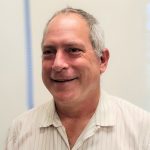 James (Jamie) Noël is Associate Professor of Chemistry and Faculty Scholar at Western University. His research group works on corrosion and related electrochemical topics in several areas, with a focus on determining the corrosion lifetimes of materials potentially involved in the safe, permanent disposal of nuclear fuel waste, including both candidate container materials (copper, steel, titanium, and nickel-based superalloys) and nuclear fuels (uranium dioxide and thoria). Prof. Noël and his team helped resolve the key corrosion questions required for the Government of Sweden to license a nuclear fuel waste repository in Sweden in 2022. Other interests include developing new experimental methods (e.g., combined electrochemical/neutron scattering approaches) and custom apparatus, such as vessels for electrochemical experiments in extreme environments (e.g., supercritical water, intense radiation fields, deep undersea, and under ultra-high vacuum).
James (Jamie) Noël is Associate Professor of Chemistry and Faculty Scholar at Western University. His research group works on corrosion and related electrochemical topics in several areas, with a focus on determining the corrosion lifetimes of materials potentially involved in the safe, permanent disposal of nuclear fuel waste, including both candidate container materials (copper, steel, titanium, and nickel-based superalloys) and nuclear fuels (uranium dioxide and thoria). Prof. Noël and his team helped resolve the key corrosion questions required for the Government of Sweden to license a nuclear fuel waste repository in Sweden in 2022. Other interests include developing new experimental methods (e.g., combined electrochemical/neutron scattering approaches) and custom apparatus, such as vessels for electrochemical experiments in extreme environments (e.g., supercritical water, intense radiation fields, deep undersea, and under ultra-high vacuum).
Prof. Noël earned BS and MS degrees in Chemistry from the University of Guelph and a PhD in Chemistry from the University of Manitoba. He worked at Ontario Hydro and then Atomic Energy of Canada Ltd. before joining Western University as Research Scientist with Dave Shoesmith. When Shoesmith prepared for retirement, Prof. Noël was appointed to lead the research group. He is Chair of the ECS Corrosion Division and a former Chair of the ECS Education Committee and ECS Canada Section. He teaches two popular ECS Short Courses on the Fundamentals of Electrochemistry. Prof. Noel was named a 2022 Faculty Scholar at Western University and received the Canada section’s 2019 R.C. Jacobsen and 2003 Lash Miller Awards.
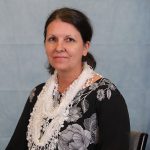 Elizabeth (Lisa) J. Podlaha-Murphy is Department Chair of the Chemical and Biomolecular Engineering Department at Clarkson University. Her research experience and expertise lies in the area of electrodeposition of novel alloy and composite materials for a variety of applications including water splitting for hydrogen generation, corrosion resistant surface coatings, nanostructured materials for micro and nanodevice components, and in modeling battery and electrochemical systems.
Elizabeth (Lisa) J. Podlaha-Murphy is Department Chair of the Chemical and Biomolecular Engineering Department at Clarkson University. Her research experience and expertise lies in the area of electrodeposition of novel alloy and composite materials for a variety of applications including water splitting for hydrogen generation, corrosion resistant surface coatings, nanostructured materials for micro and nanodevice components, and in modeling battery and electrochemical systems.
In 1986, Dr. Podlaha received her BS in Chemical Engineering with Honor’s Program Distinction, followed by an MS and employment at IBM. Inspired by her IBM colleagues doing cutting-edge research, she returned to school, earning a PhD in Chemical Engineering from Columbia University. She completed a postdoctoral position in the Department of Materials Science at the École Polytechnique Fédérale de Lausanne. Her first academic appointment was at Louisiana State University as an Assistant/tenured Associate Professor in Chemical Engineering (1998-2007), and at Northeastern University as a tenured Associate/full Professor (2007-2017). As part of NSF, DOE, NIH, and DARPA funded projects, including the NSF CAREER Award, Dr. Podlaha directed 26 graduate (20 PhD and 6 MS) and over 40 undergraduate students in electrochemical research in the lab. She authored or co-authored 84 peer reviewed journal publications (half of those in the Journal of The Electrochemical Society and Electrochemical and Solid State Letters), 24 proceedings papers, one book chapter, and four patents.
Podlaha-Murphy is Past Chair of the ECS Electrodeposition Division (2015-2017), and held the preceding officer positions of Member at Large, Treasurer, Secretary, and Vice Chair. Dr. Podlaha served on many Society committees including the Education Committee, Individual Membership Committee, Institutional Engagement Committee and organized, chaired, and co-chaired symposia. In 2019, Dr. Podlaha co-advised the newly formed ECS Student Chapter at Clarkson University. She currently serves as ECS Treasurer.
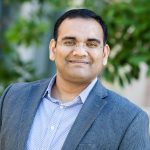 Vijay Ramani is the Vice Provost for Graduate Education and International Affairs at Washington University in St. Louis (WUSTL). He holds the Roma B. and Raymond H. Wittcoff Distinguished University Professorship and serves as Professor in the WUSTL Department of Energy, Environmental, and Chemical Engineering. His research interests lie at the confluence of electrochemical engineering, materials science, and renewable energy technologies, with a focus on electrochemical energy conversion and storage (low temperature fuel cells, electrolyzers, and redox-flow batteries). Research directions in his group include multi-functional electrolyte and electrocatalyst materials for electrochemical systems, analyzing the source and distribution of overpotential in electrochemical systems, mitigating component degradation in electrochemical devices, and in situ diagnostics to probe electrochemical systems.
Vijay Ramani is the Vice Provost for Graduate Education and International Affairs at Washington University in St. Louis (WUSTL). He holds the Roma B. and Raymond H. Wittcoff Distinguished University Professorship and serves as Professor in the WUSTL Department of Energy, Environmental, and Chemical Engineering. His research interests lie at the confluence of electrochemical engineering, materials science, and renewable energy technologies, with a focus on electrochemical energy conversion and storage (low temperature fuel cells, electrolyzers, and redox-flow batteries). Research directions in his group include multi-functional electrolyte and electrocatalyst materials for electrochemical systems, analyzing the source and distribution of overpotential in electrochemical systems, mitigating component degradation in electrochemical devices, and in situ diagnostics to probe electrochemical systems.
Prof. Ramani has a PhD from the University of Connecticut and BE from Annamalai University, both in Chemical Engineering. The National Science Foundation, Department of Energy, Office of Naval Research, and Advanced Research Projects Agency–Energy funded his research with mechanisms including a 2009 NSF CAREER award and 2010 ONR Young Investigator Award. He received the 2010 3M Non-tenured Faculty Award, and 2012 ECS Energy Technology Division Supramaniam Srinivasan Young Investigator Award. Prof. Ramani has been affiliated with ECS since 2001 and is a Life Member. He served as co-editor of ECS Interface (2013-2017). He is a past Chair of the ECS IE&EE Division and served on the Society’s Finance Committee and Honors & Awards Committee.
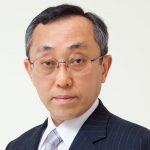 Yasuhiro Shimizu is Professor and Dean of the Graduate School of Engineering at Nagasaki University. His research focuses on chemical sensors including various kinds of gas sensors capable of detecting humidity, oxygen, VOCs, and odors, by employing several detection principles. Most recently, his work has been directed at developing gas sensors for use in safety and health care.
Yasuhiro Shimizu is Professor and Dean of the Graduate School of Engineering at Nagasaki University. His research focuses on chemical sensors including various kinds of gas sensors capable of detecting humidity, oxygen, VOCs, and odors, by employing several detection principles. Most recently, his work has been directed at developing gas sensors for use in safety and health care.
Prof. Shimizu received his PhD in Engineering in 1987 from Kyushu University after completing his BS in Applied Chemistry there in 1980. He joined the faculty of Nagasaki University in 2005. The Electrochemical Society of Japan (ECSJ) recognized his scientific contributions and service by appointing him as a Fellow in 2020. Other awards include the 2021 ECS Sensor Division Outstanding Achievement Award; 2008 ECSJ Scientific Achievement Award; 2001 Seiyama Award of the Japan Association of Chemical Sensors (JACS); 2001 and 2005 ECSJ Distinguished Paper Awards; and 1992 ECSJ Sano Award for a young distinguished researcher. Prof. Shimizu served as Chair of the Asia/Pacific Region in the Executive Steering Committee of the International Meeting on Chemical Sensors (since 2016); Chair of the International Steering Committee of the Asian Conference on Chemical Sensors (since 2017); President of the Japan Association of Chemical Sensors (an ECSJ expert division) (2015-2016); Editor of Sensors and Actuators B: Chemical (2008-2018), and Co-Editor-in-Chief of Sensors and Actuators B: Chemical (since 2018).
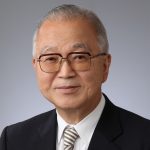 Shunpei Yamazaki is the Founder and President of Semiconductor Energy Laboratory Co., Ltd. He is also General Managing Director of the Foundation for Promotion of Material Science (MST), and President and Founder of the Kato & Yamazaki Educational Foundation. His current research focuses on the research and development of an oxide semiconductor.
Shunpei Yamazaki is the Founder and President of Semiconductor Energy Laboratory Co., Ltd. He is also General Managing Director of the Foundation for Promotion of Material Science (MST), and President and Founder of the Kato & Yamazaki Educational Foundation. His current research focuses on the research and development of an oxide semiconductor.
Dr. Yamazaki received the BE (1965) and ME (1967) from Doshisha University. While a PhD student there, he invented a non-volatile memory known as “flash memory.” After completing his PhD in 1971, Dr. Yamazaki joined TDK Corporation (formerly known as Tokyo Denki Kagaku Kogyo K.K). In 1980, he founded Semiconductor Energy Laboratory Co., Ltd. (SEL) and assumed the position of President.
Doshisha University awarded Dr. Yamazaki honorary degrees in 2011 and the title of “Friends of Doshisha” in 2015. He received the 2018 American Ceramic Society W. David Kingery Award; 2015 SID Special Recognition Award; 1997 Japanese Prime Minister’s Medal with Purple Ribbon; and 1984 Richard M. Fulrath Award. Synectics ranked him 58th in the “Top 100 Living Geniuses Survey” in 2007. Dr. Yamazaki published or co-published over 500 papers or conference presentations. He holds the 2004, 2011, and 2016 Guinness World Records for “holding the most patents credited as inventor”—11,353 as of June 2016. In 2005, USA Today named him as the most prolific inventor in history. He is a member of the Royal Swedish Academy of Engineering Sciences and Academician of World Academy of Ceramics. Dr. Yamazaki joined ECS in 1971.
The Electrochemical Society
ECS has led the world in electrochemistry and solid state science and technology and allied subjects since 1902. We are a volunteer-directed international nonprofit professional society advancing scientific theory and practice by publishing cutting-edge research, hosting prestigious meetings, fostering training and education, and collaborating with other organizations. Our robust global membership develops innovative solutions to the planet’s major challenges. Scientists, engineers, and industry leaders share pioneering scientific developments, exchange ideas, network, and expand research horizons at ECS biannual, co-hosted, and sponsored meetings. The ECS Digital Library on IOPscience hosts highly peer-reviewed journal and magazine articles and meeting abstracts from our distinguished publications including the Journal of The Electrochemical Society (the oldest peer-reviewed journal in its field) and ECS Journal of Solid State Science and Technology. The Society supports open access to its publications, launching two new Gold Open Access journals, ECS Sensors and ECS Advances, in 2022.
Media Contact
The Electrochemical Society
Shannon Reed
Director of Community Relations
609.737.1902, Ext. 107
Shannon.Reed@electrochem.org

